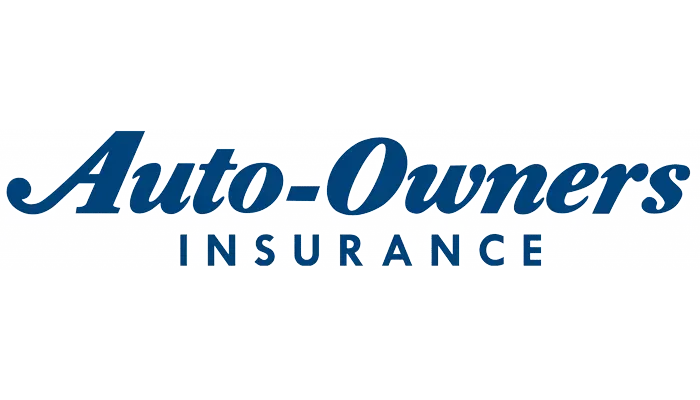Trusted by leading Enterprises for effective Coi management solutions





Common risk management COI compliance challenges

Enterprise Risk Exposure & Liability Gaps
Risk managers face significant exposure when vendor certificates expire or provide inadequate coverage across enterprise operations. Missing certificates create liability gaps that expose organizations to costly claims, regulatory violations, and financial losses. One major incident with an underinsured vendor can result in millions in damages and legal defense costs.

COI Compliance Monitoring & Reporting
Risk management teams waste countless hours requesting certificates from hundreds or thousands of vendors across multiple business units. Vendors delay submissions, provide expired documents, or submit inadequate coverage that doesn't meet enterprise requirements. Manual follow-ups prevent focus on strategic risk assessment and mitigation activities.

Chasing Vendor COI's
Risk management teams waste countless hours requesting certificates from hundreds or thousands of vendors across multiple business units. Vendors delay submissions, provide expired documents, or submit inadequate coverage that doesn't meet enterprise requirements. Manual follow-ups prevent focus on strategic risk assessment and mitigation activities.
Scroll down to see how SimpleCerts automates certificate of insurance tracking for risk managers with intelligent COI compliance solutions.

How SimpleCerts makes COI tracking & verification easy for risk managers

Enterprise Risk Assessment & Monitoring
Automated certificate verification ensures every vendor maintains adequate coverage before engaging in business operations. Real-time monitoring provides instant visibility into enterprise-wide compliance status while advanced analytics identify risk concentration and coverage gaps. Comprehensive risk assessment tools evaluate vendor insurance adequacy across all business units and operational areas.

Board-Level COI Risk Intelligence & Compliance Reporting
Self-service tenant portals allow renters to upload and manage their own certificate renewals without property manager intervention. Automated reminders prevent policy lapses while lease integration triggers insurance requests during tenant onboarding. Eliminate endless phone calls and follow-ups with tenants who ignore renewal notices.

Automated Vendor Compliance Management
Eliminate manual vendor certificate collection with automated onboarding workflows that require current insurance before vendor activation. Self-service vendor portals allow suppliers to manage their own certificate renewals while automated compliance monitoring tracks thousands of vendors simultaneously. Custom requirement templates ensure consistent coverage standards across all vendor categories and risk levels.
Ready to automate your COI tracking and reduce compliance risk?
What our COI Tracker Includes
Complete certificate of insurance management that combines cutting-edge AI technology with expert human verification. SimpleCerts delivers affordable, fully managed COI tracking that eliminates compliance headaches for property managers, contractors, and risk professionals.

Fully managed COI Software Solution
Automated certificate collection, compliance tracking, and renewal management. Upload your requirements once and let our platform handle vendor onboarding, document verification, and ongoing monitoring. Real-time dashboards keep you informed without the manual work.

Most Affordable COI Solution
Enterprise-grade certificate of insurance software at small business prices. No hidden fees, setup costs, or per-user charges. Get unlimited policyholder certificates, automated compliance alerts, and dedicated support starting at industry-leading rates.

Human COI Verification Included
When compliance issues arise or certificates need follow-up, our certified risk management professionals step in to handle vendor communication and resolution. You get AI-powered efficiency with human expertise managing the complex situations that require personal attention.
Enterprise Risk Management and Certificate of Insurance Compliance Strategy
Risk managers in large organizations face complex challenges when managing certificate of insurance requirements across extensive vendor networks and diverse business operations. With thousands of vendors, contractors, and service providers requiring current insurance coverage, traditional manual tracking methods create significant operational risks and compliance gaps that expose organizations to substantial financial liability.
Understanding Enterprise COI Risk Management
Certificate of insurance management at the enterprise level involves coordinating insurance requirements across multiple business units, geographic locations, and vendor categories. Risk managers must ensure that every vendor maintains appropriate coverage limits, policy endorsements, and additional insured protections that align with organizational risk tolerance and regulatory requirements.
The complexity multiplies when managing global vendor networks with varying insurance requirements across different jurisdictions. International vendors may carry coverage that doesn't align with domestic requirements, while local contractors may lack the comprehensive protection needed for enterprise-level operations. Risk managers must navigate these complexities while maintaining consistent compliance standards.
Enterprise-Level COI Compliance Challenges
Large organizations typically manage relationships with hundreds or thousands of vendors across multiple categories including professional services, contractors, suppliers, and consultants. Each vendor category requires different insurance requirements based on the services provided and associated risk exposure. Manual tracking systems become inadequate when managing this volume and complexity.
Regulatory compliance adds another layer of complexity for risk managers. Industry-specific regulations may mandate certain insurance requirements while corporate governance policies establish minimum coverage standards. Risk managers must ensure vendor compliance with both regulatory requirements and internal risk management policies while maintaining comprehensive documentation for audits and regulatory reviews.
Vendor onboarding processes often create bottlenecks when certificate collection is manual. New vendors cannot begin operations until proper insurance documentation is verified, while existing vendors may continue working with expired coverage due to tracking system limitations. These gaps create operational inefficiencies and significant liability exposure.
Enterprise Risk Management and Certificate of Insurance Compliance Strategy
Automated certificate of insurance management platforms address enterprise-scale challenges through intelligent workflows that handle high-volume vendor management while maintaining granular control over compliance requirements. Advanced systems integrate with procurement platforms and vendor management systems to create seamless onboarding processes.
Real-time compliance monitoring provides risk managers with instant visibility into enterprise-wide certificate status. Automated alerts identify coverage gaps, upcoming renewals, and policy changes that could impact organizational risk exposure. This proactive approach prevents compliance gaps from going undetected until incidents occur.
Comprehensive reporting capabilities support board-level governance and regulatory compliance requirements. Risk managers can generate detailed compliance reports, risk concentration analyses, and vendor performance metrics that inform strategic risk management decisions and demonstrate proactive compliance management to stakeholders.
Implementation Strategy for Enterprise Organizations
Successful enterprise COI management requires standardized requirements across business units while maintaining flexibility for unique operational needs. Risk managers should establish comprehensive vendor categories with specific insurance requirements that align with organizational risk tolerance and regulatory obligations.
Integration with existing enterprise systems ensures operational continuity while providing enhanced compliance capabilities. API connections with procurement platforms, vendor management systems, and ERP solutions create unified workflows that eliminate duplicate data entry and maintain consistent vendor information.
Regulatory Compliance and Governance
Enterprise risk management requires comprehensive documentation and reporting capabilities that support regulatory audits and internal governance requirements. Automated systems maintain detailed audit trails of all certificate activities while providing executives with real-time compliance status across the entire organization.
Risk managers benefit from advanced analytics that identify trends, concentration risks, and vendor performance patterns that inform strategic risk management decisions. These insights support data-driven risk management strategies that align with organizational objectives and regulatory requirements.
Buy SimpleCerts COI Tracking Software Today
Certificate of insurance management represents a critical risk management function that risk managers cannot ignore. Automated solutions eliminate administrative burden while ensuring comprehensive compliance across diverse property portfolios.
Want to learn more?
Frequently Asked Questions -
COI Software Risk Managers
How do enterprise risk managers handle COI requirements across thousands of vendors?
SimpleCerts provides enterprise-scale automation that manages unlimited vendors across multiple business units. Automated workflows handle vendor onboarding, compliance monitoring, and renewal management while providing real-time visibility into organization-wide certificate status.
What insurance requirements should risk managers set for different vendor categories?
Our compliance team helps establish comprehensive requirement templates based on vendor risk profiles, industry standards, and regulatory requirements. Different vendor categories receive appropriate coverage requirements while maintaining consistency across business units.
How do risk managers track COI compliance across multiple business units and locations?
The enterprise dashboard provides real-time compliance visibility across all business units, geographic locations, and vendor categories. Advanced filtering and reporting capabilities allow risk managers to analyze compliance by division, location, vendor type, or any custom criteria.
What happens when vendor insurance expires or coverage becomes inadequate?
Automated monitoring identifies coverage gaps immediately with escalating alerts to risk management teams. Vendors are automatically notified of renewal requirements while internal stakeholders receive compliance status updates for immediate risk assessment.
Can SimpleCerts integrate with enterprise procurement and vendor management systems?
Yes. SimpleCerts integrates with major procurement platforms, vendor management systems, and ERP solutions including SAP, Oracle, Coupa, and others. API connections ensure seamless data flow and consistent vendor information across enterprise systems.
How does SimpleCerts support regulatory audits and compliance reporting?
Comprehensive audit trails document all certificate activities while automated reporting generates detailed compliance reports for regulatory requirements. Custom reports support industry-specific compliance needs and internal governance requirements.


